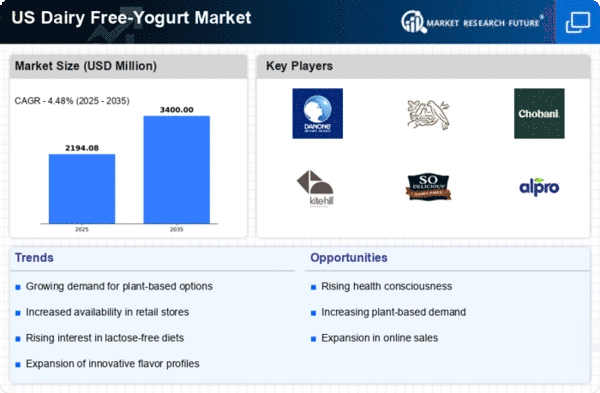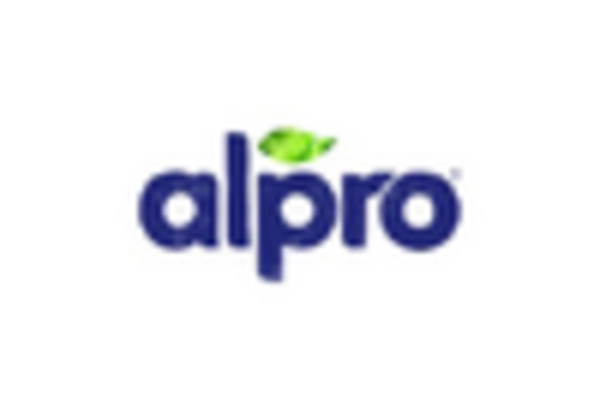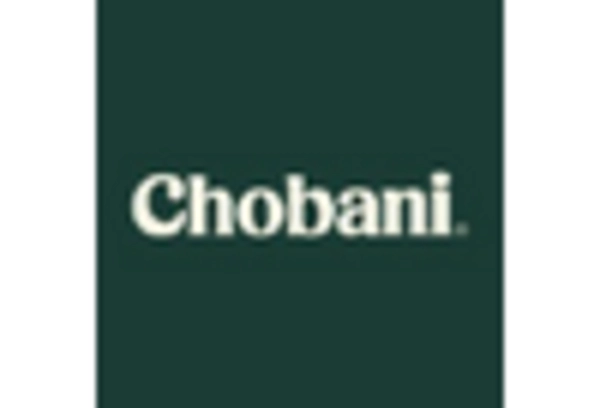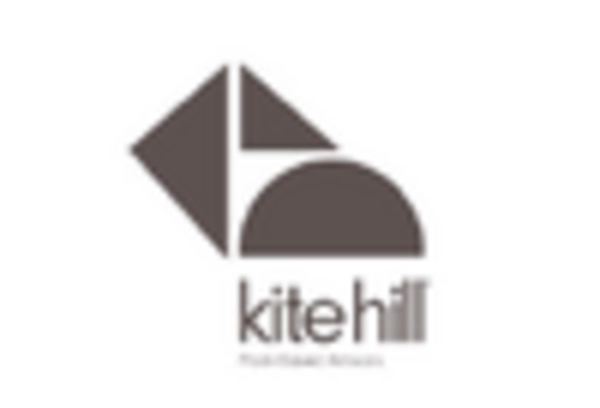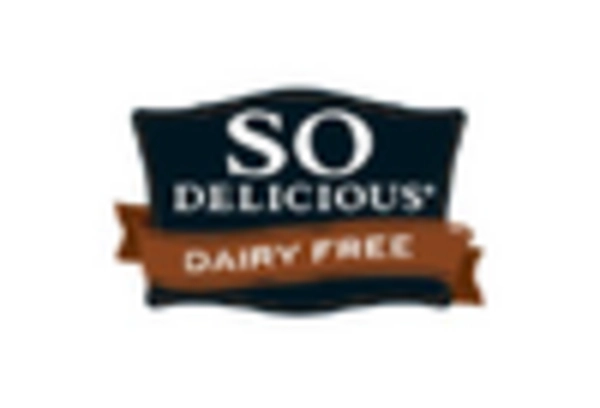Rising Vegan Population
The increasing number of individuals adopting vegan lifestyles in the US is a pivotal driver for the dairy free-yogurt market. As of 2025, approximately 9% of the US population identifies as vegan, a figure that has steadily risen over the past decade. This demographic shift is influencing consumer preferences, leading to a heightened demand for plant-based alternatives. The dairy free-yogurt market is experiencing growth as these consumers seek products that align with their dietary choices. Furthermore, the trend towards veganism is often accompanied by a broader interest in health and wellness, which further propels the market. The dairy free-yogurt market is thus positioned to benefit from this demographic change, as brands innovate to cater to the unique tastes and nutritional needs of vegan consumers.
Health and Wellness Trends
The ongoing health and wellness trends in the US are significantly shaping the dairy free-yogurt market. Consumers are increasingly prioritizing products that offer health benefits, such as probiotics and low sugar content. In 2025, the market for functional foods, including dairy free yogurts enriched with vitamins and minerals, is projected to grow by 15%. This shift towards health-oriented products is prompting manufacturers to reformulate their offerings to meet consumer demands. The dairy free-yogurt market is thus adapting by introducing options that not only cater to dietary restrictions but also promote overall well-being. This alignment with health trends is likely to attract a diverse consumer base, from fitness enthusiasts to those simply seeking healthier snack alternatives.
Innovative Marketing Strategies
The dairy free-yogurt market is witnessing a transformation driven by innovative marketing strategies. Brands are increasingly utilizing social media platforms and influencer partnerships to reach a broader audience. This approach appears to resonate particularly well with younger consumers, who are more likely to engage with brands that align with their values. In 2025, it is estimated that over 70% of millennials and Gen Z consumers are influenced by social media when making food choices. As a result, companies in the dairy free-yogurt market are investing in targeted advertising campaigns that highlight the health benefits and unique flavors of their products. This strategic focus on digital marketing not only enhances brand visibility but also fosters a community around plant-based living, further driving sales and market growth.
Sustainability and Ethical Sourcing
Sustainability concerns are increasingly influencing consumer choices in the dairy free-yogurt market. As awareness of environmental issues grows, consumers are gravitating towards products that are ethically sourced and produced with minimal environmental impact. In 2025, it is estimated that 60% of consumers consider sustainability when purchasing food products. This trend is prompting brands in the dairy free-yogurt market to adopt sustainable practices, such as using eco-friendly packaging and sourcing ingredients from responsible suppliers. By aligning with consumer values around sustainability, these brands not only enhance their market appeal but also contribute to a more sustainable food system. This focus on ethical sourcing is likely to become a key differentiator in a competitive market.
Increased Lactose Intolerance Awareness
Awareness of lactose intolerance is significantly impacting the dairy free-yogurt market. In the US, it is estimated that around 36% of adults experience some form of lactose intolerance, leading to a growing demand for lactose-free alternatives. As consumers become more informed about their dietary restrictions, they are actively seeking out dairy free options, including yogurt. This trend is not merely a passing phase; it reflects a fundamental shift in consumer behavior towards more inclusive dietary choices. The dairy free-yogurt market is responding by expanding product lines to include a variety of lactose-free yogurts made from almond, coconut, and soy. This adaptation not only meets the needs of lactose-intolerant individuals but also attracts health-conscious consumers who prefer plant-based diets.


